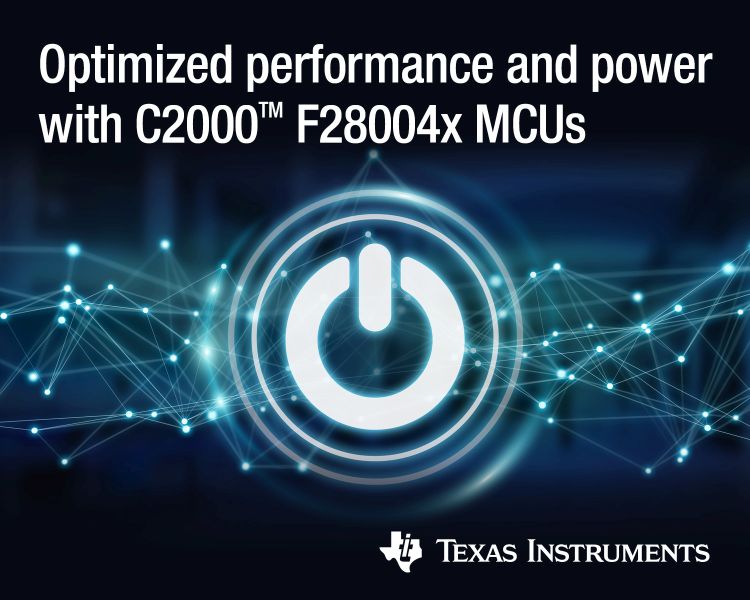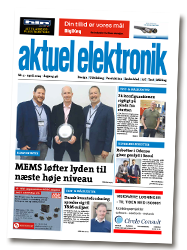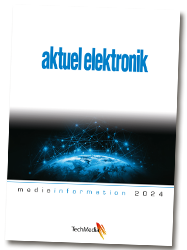 Texas Instruments (TI) (NASDAQ: TXN) today unveiled its newest additions to the C2000™ Piccolo™ microcontroller (MCU) portfolio. With streamlined performance, the new C2000 F28004x MCU family is optimized for power-control in cost-sensitive applications such as on-board chargers for electric vehicles (EVs), inverters for motor control, and industrial power supplies. By adding this new family of real-time control devices that integrate a floating-point unit, math accelerators and an optional parallel processor, the C2000 Piccolo MCU portfolio continues to set industry standards by boosting the performance of its 100-MHz central processing unit (CPU).
Texas Instruments (TI) (NASDAQ: TXN) today unveiled its newest additions to the C2000™ Piccolo™ microcontroller (MCU) portfolio. With streamlined performance, the new C2000 F28004x MCU family is optimized for power-control in cost-sensitive applications such as on-board chargers for electric vehicles (EVs), inverters for motor control, and industrial power supplies. By adding this new family of real-time control devices that integrate a floating-point unit, math accelerators and an optional parallel processor, the C2000 Piccolo MCU portfolio continues to set industry standards by boosting the performance of its 100-MHz central processing unit (CPU).
Developers can reduce bill-of-material (BOM) costs while building smaller, more reliable systems by taking advantage of the industry-leading integrated analog of the C2000 Piccolo F28004x MCUs, which offer system protection and new capabilities to enable development of high-performance power-control systems. The integrated analog features include three independent 12-bit analog-to-digital converters (ADCs) with post-processing hardware, advanced synchronization capabilities and programmable gain amplifiers, along with a sophisticated comparator and digital-to-analog converter subsystem and a sigma-delta filter interface.
Key features and benefits of the new C2000 F28004x MCUs
- Streamlined performance and power: With 60 percent lower active power than previous Piccolo devices; the optional on-chip DC/DC converter reduces active power up to 70 percent.
- Advanced actuation and design flexibility: Fourth generation of TI’s high-resolution pulse-width modulation (PWM) timer technology implements the most advanced high-frequency switching techniques for increased efficiency and power density.
- Enhanced digital and analog crossbars: Combining inputs, outputs and internal resources enables flexibility to support control and protection mechanisms.
- New capabilities: Embedded real-time analysis and diagnostic unit enables enhanced debugging, an ultra-high-speed serial interface improves throughput over isolation boundaries, and flexible boot modes give developers the ability to reduce or eliminate boot mode pins.
For more information, see http://www.ti.com/C2000Piccolo-pr-eu.

